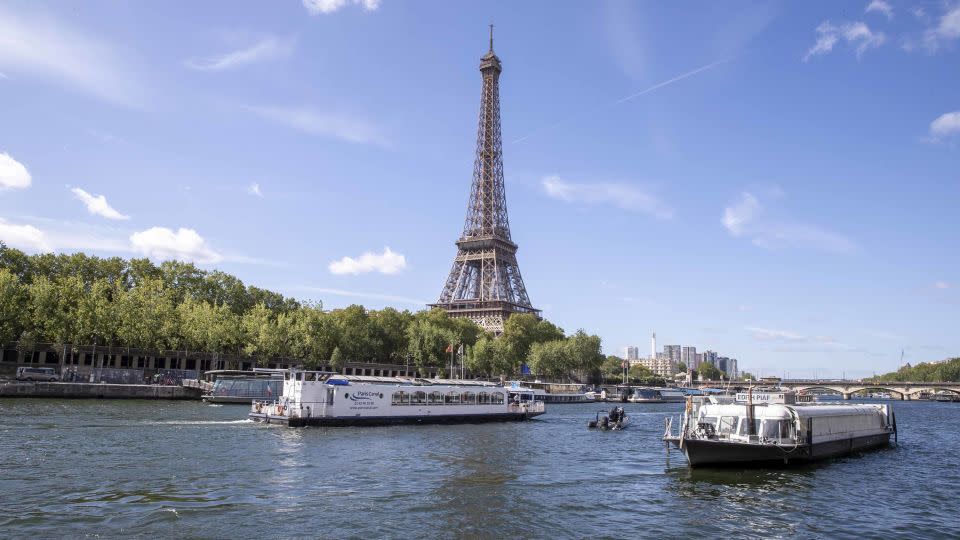Paris to bring back swimming in River Seine after 100 years
Paris plans to make the Seine the centerpiece of the 2024 Olympic Games, with long-term efforts to clean up the river allowing swimming events to take place in its waters.
When the French capital hosted its first Olympic Games in 1900, swimming competitions took place in the river. Parisians used to bathe in the Seine in centuries past, until it was banned in 1923 due to pollution.
But now clean up efforts, which started in 2018 as part of what is known as the “Swimming Plan,” are coming to fruition, and local authorities say residents will be able to make use of the river once again as part of the legacy of the Olympics, which is returning to the French capital after 100 years.
The opening ceremony, which is traditionally held inside the host city’s Olympic stadium, will take place on the river, with as many as 600,000 people expected to watch from the banks.
Then a number of races will take place on the river during the Olympics.
“At the Paris 2024 Games, the athletes will inaugurate swimming in the river with the Olympic events. A revival that will pave the way for aquatic leisure,” reads a statement from Paris city hall published July 10.

Works under the 1.4 billion-euro ($1.55-billion) plan to clean up the Seine have been underway for years now, but the Olympic games has had a galvanizing effect.
Two disinfection units at wastewater treatment plants run by the Paris region public sanitation service will be operational from this summer, and structures that will help to improve water quality, such as a rainwater storage basin, are under construction.
The basin will hold rainwater and gradually release it into the sewage network, preventing pollution when wastewater overflows during periods of rain.
And existing efforts have already boosted water quality.
Analysis carried out at the beginning of June showed “excellent results” in complying with European regulation, according to city hall. And testing in the parts of the river set to be used for Olympic events met standards 91% of the time from July 20 to August 11, 2022.
This will allow open water swimming events, paratriathlon and triathlon events to start from the Alexandre III bridge.
From 2025 the public will be able to swim in the Seine at three bathing sites: Bras Marie, Bras de Grenelle and Bercy, according to city hall.
“The swimming areas will be marked out by buoys and a pontoon to get to them, with spaces to change, shower and store your things on the quay,” it said in a statement. In addition, around 20 other potential swimming sites have been identified in the greater Paris region.
However, some locals told CNN affiliate BFMTV that they were dubious about entering the water.
“I will not swim not now, not in two years or three,” said one woman in a video clip. “Look at the color, we don’t know what is in there.”
And a man said out that there were still “weird things” floating in the river. “They really need to do a proper cleanup upstream,” he said.
But Paris mayor Anne Hidalgo told CNN that the plan is also part of wider efforts to adapt the city to future challenges.
“What we aim with this cleanup of the Seine is the adaptation of the city to climate change,” she said.
“The Seine is a corridor of biodiversity and a source for cooling down in the summer,” Hidalgo said, adding that the number of fish species has increased – due to the clean up – from two to more than 30 in recent years.
For more CNN news and newsletters create an account at CNN.com







